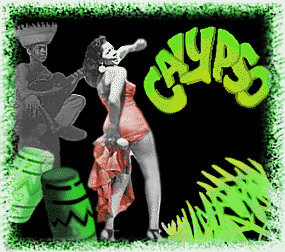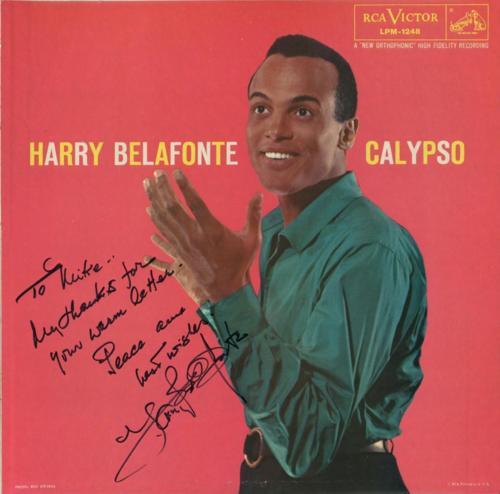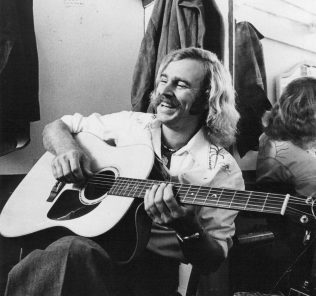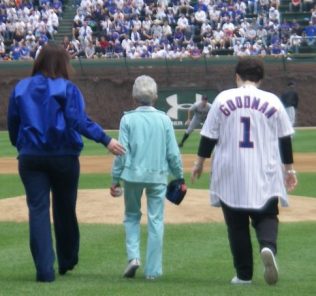Calypso Call & Response

March 19, 2011—
When I talk to aspiring writers-journalists I make sure to mention Joseph Mitchell. He was a long time staff writer for The New Yorker magazine. He made every word count.
His style was that of a calypso breeze.
Mitchell, who died in 1996 at the age of 88, was born on a tobacco farm in North Carolina. He dropped out of the University of North Carolina to become a journalist in New York City. He wrote about carnies, gypsies, strippers, vagabonds, drunks and oddballs in the side pocket. He illuminated the hearts who beat in dark shadows.
Its the kind of world today’s newspapers discourage writers from pursuing.
I’ve given several writers copies of the Mitchell anthology “McSorley’s Wonderful Saloon” [Pantheon Books, 2001.] After reading Mitchell, you remember the value of economy. Pacing. Respect for your subject.
Mitchell used Harlem singer Wilmoth “The Calypso King of New York” Houdini as a window into the nascent late 1930s calypso scene. Houdini wrote calypsos like “I Like Bananas Because They Have No Bones.”
As part of Joe “The Mighty Stylus” Bryl’s “Global Soul” series I’ll be spinning calypso and soca music at 8 p.m. March 23 at Maria’s Packaged Goods & Community Bar, 960 W. 31st. St. (community-bar.com) on the mid-south side of Chicago. Its tropical down there. Maria’s is the kind of behind-a-liquor store bar you would find in a Mitchell essay. The place features 300 magical brands of beer.
Mitchell wrote the essay “Houdini’s Picnic” in 1939. It is on page 253 of “McSorley’s Wonderful Saloon.” Few Americans had heard of calypso in 1939. Readers love discovery. Readers are turned off by things they already know.
Here is part of Mitchell’s set up on the calypso singer:
“With guitars slung under their arms, they hang out in rum shops and Chinese cafes on Marine Square and Frederick Street in Port-of-Spain, the principal city of Trinidad, hunting for gossip around which they can construct a Calypso. Several brag truthfully that women fight to support them. Most of them are veterans of the island jails. To set themselves apart from lesser men, they do not use their legal names but live and sing under such adopted titles as the Growler, the Lord Executor, King Radio…..”
That’s minimalist drama.
By 1945 the Andrews Sisters covered Lord Invader and Lionel Belasco’s “Rum and Coca-Cola” (featured on the new Wanda Jackson album) which sold 4 million copies. Comic/future Dick Van Dyke star Morey Amsterdam ripped off the song copyright in 1943 when he rolled through Trinidad on a USO tour. The songwriters sued and won $150,000 in back royalties, but Amsterdam also retained copyright.
It makes sense that Mitchell would be drawn to calypsonians. They, too are journalists. They report stories from the streets and do not shy away from social commentary. This is why during the cold war 1950s political minds from Harry Belafonte to Louis Farrakhan found a place as hot, hot, hot calypso singers.
Farrakhan recorded under the name “The Charmer.” A dozen of his recordings can be found on “The Charmer, Calypso Favorites 1953-54” on the Monogram label. Farrakhan came to Chicago from the east coast in 1955 to appear in “The Calypso Follies” revue at the Blue Angel nightclub.

Besides a schoolboy heart, Jimmy Buffett has a calypsonian’s heart. He began his career as a journalist for Billboard magazine in Nashville. He blended the calypso soul of Belafonte with country pop to become the island empire that he is today. [Buffett band member Robert Greenidge is a master steel drummer from Trinidad who also soloed on John Lennon’s “Double Fantasy” album.]
On Wednesday I’ll bring the best of my calypso vinyl collection including Lord Invader, Duke Of Iron, Mighty Sparrow and Calypso Rose. I’ll throw in Col. Sanders’ “Tijuana Picnic” just to piss people off. And I won’t forget the faster and more dense soca (which traditional calypsonians despise—think Dylan going electric) of Machel Montano and I just dug up the calypso CD from actor Robert Mitchum where he sings “They Dance All Night.”
If prompted, maybe I’ll read some Joseph Mitchell. And take my time.




Leave a Response